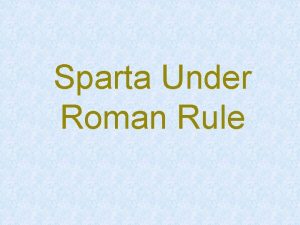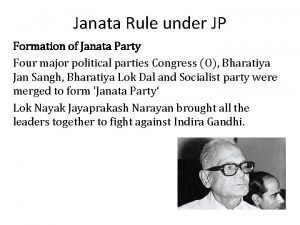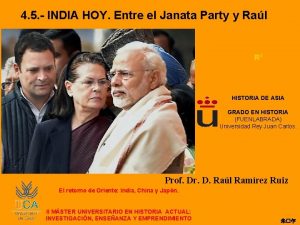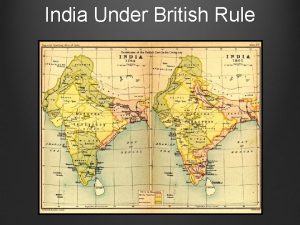Janata Rule under JP Formation of Janata Party




- Slides: 4

Janata Rule under JP Formation of Janata Party Four major political parties Congress (O), Bharatiya Jan Sangh, Bharatiya Lok Dal and Socialist party were merged to form 'Janata Party‘ Lok Nayak Jayaprakash Narayan brought all the leaders together to fight against Indira Gandhi.

6 th General Elections - 1977 - Janata Government formed Janata Party and its allies swept the polls by getting 345 seats out of 542 in the Lok Sabha. Morarji Desai, the 4 th Indian Prime Minister on 24 th March 1977 During the emergency days, Indira Gandhi made a constitutional amendment (known as 42 nd amendment) crippling the constitutional powers. But after Janata Party came to power, they reversed all the amendments, to restore the supremacy of the Constitution. (popularly known as 44 th amendment).

• Appointment of Shah Commission by Janata Government • under the Chairmanship of Justice Shah to enquire into the atrocities and excess committed during the Emergency period. • Justice Shah also submitted his report in August 1978. • In September 1977, Indira Gandhi and Sanjay Gandhi were arrested for various charges. • This arrest event created more sympathy to Indira Gandhi. Fall of Morarji Government no confidence motion July(1979) Due to infighting among the merged parties, the Janata Government could not remain in power for the full term. Morarji Desai lost the confidence vote in the Lok Sabha and resigned from Prime Ministership.

Work of Janata Government 1. Restoration of Democracy 2. Economic Policy (Gandhian Socialism) Labour Intensive small scale village industries were encouraged. Employment given through ‘Food for Work’ 3. Demonetization, January 1978. 4. Foreign Policy







